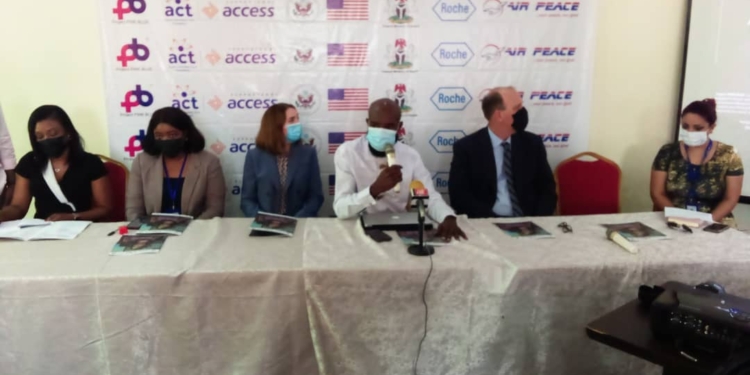Project Pink Blue, a nonprofit organisation committed to the treatment of cancer, has trained 34 oncology pharmacists.
The six-day training in Lagos State tagged: ‘Upgrade Oncology’ is to build the capacity of pharmacists in the management, care and cure of cancer patients.
Upgrade Oncology is a capacity development programme focused on improving cancer treatment and care through providing medical oncology training and the domestication of the treatment guidelines for better cancer care in Nigeria.
The Executive Director of Project Pink Blue, Mr Runcie Chidebe, expressed delight at the commencement of the training.
Mr Chidebe said that the training is essential because pharmacy is an important element in cancer treatment.
“Most cancers are treated with drugs, therapies and other forms of known medication.
He further said, “there is a need to provide training for these people who are providing this chemotherapy to patients and who are also giving these medications. People cannot give what they don’t have.
The training has pharmacists from the six geo-political zones of the country.
The executive director said that after the training, the oncology pharmacists would go back to their different hospitals to provide quality care to cancer patients.
“COVID-19 has shown us that there is a need for all to start thinking about drug development, about the clinical trial, about field testing,” Mr Chidebe said.
He said that more than 100,000 Nigerians were diagnosed with cancer yearly, and more than 72,000 died of the disease every year.
Prof. Donald Harvey of the Department of Hematology and Medical Oncology, Emory University School of Medicine, Atlanta, Georgia, U.S., said that teamwork among medical practitioners was necessary to manage cancer patients.
“We cannot have any success unless we are a team, and that team has to be integrated.
“ It has to be under the direction of a physician taking care of the patient. Everyone has to have his expertise,” Harvey said.
He said that the purpose of the training was not for pharmacists to take over the role of doctors.
“We are here to add to education on how drugs are used safely by nurses, physicians and patients.
”Physicians alone cannot do it. They need help; they need us and others to help to deliver that care, “Harvey said.
Prof. Cindy O’ Bryant of the Department of Clinical Pharmacy, the University of Colorado, also in the U.S., said that the training would empower pharmacists more to give hope to cancer patients in their daily practice.
“We are strengthening that network of hope, offering patients with cancer a place to go, a place to receive treatment, and a place to be cured, ” O’ Bryant said.
A Professor of Pharmacy at the University of Lagos, Cecilia Igwilo, called for more awareness about cancer in Nigeria.
She said that it was not easy to watch one’s family member die slowly from cancer.
“I believe that there must be more awareness about cancer even in pediatric patients, even among elderly people, even among middle-aged people.
“There should be awareness everywhere in schools,” Igwilo said.
Some of the partners in the training are Act Foundation, Access Bank, U.S. Embassy in Nigeria, Roche and Air Peace, among others.

